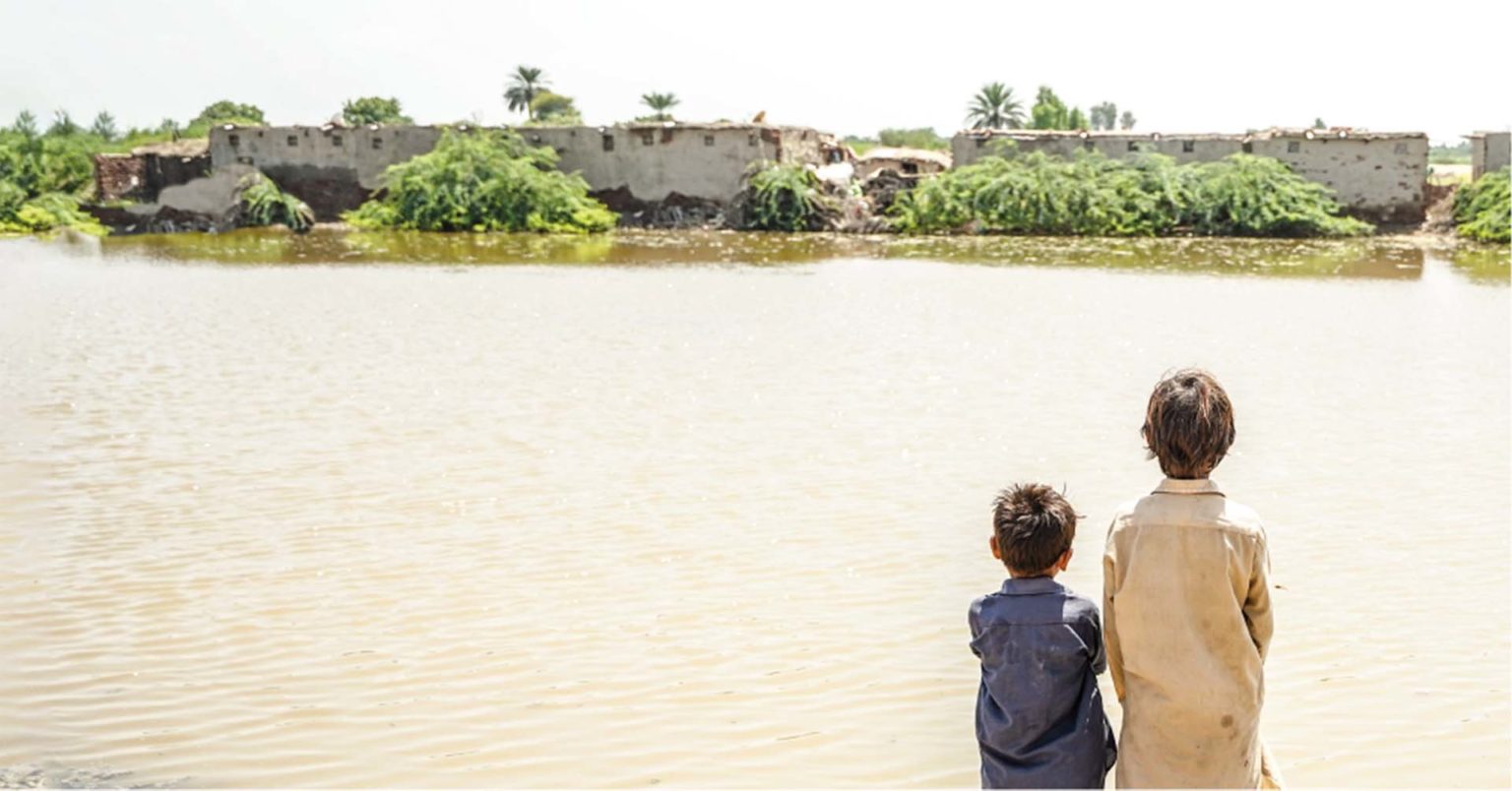2022 has been a year of climate disasters and we know these will only become more frequent and extreme.
We have witnessed extreme weather events taking place across the world, often affecting some of the world’s poorest and most vulnerable communities. The people least responsible for climate breakdown are suffering the most from its consequences.
Since 1984, Charity Project PK has been working with local communities to build resilience to climate and natural disasters through adaptation projects. From Bangladesh, Afghanistan and Pakistan, to Somalia and Ethiopia, we have been empowering communities to prepare for the worst effects of extreme weather events causing floods and droughts. However, adaptation efforts can only go so far.
Heavier than usual rains during the monsoon season in 2022 has caused flash floods to engulf entire villages and sweep away crops, livelihoods and livestock in Bangladesh, Afghanistan and most recently Pakistan, where an unprecedented one-third of the country is currently underwater. What was once hectares of land is now sea.
Thousands of people have lost their lives to the effects of the climate crisis this year, and many more lives will undoubtedly be lost. In the Horn of Africa, an unprecedented four consecutive failed rainy seasons have left extremely vulnerable people facing the worst drought in recent history. Right now, 28 million people are facing acute food shortages with one person dying every 36 seconds from hunger.
The climate crisis is not just an environmental problem, but a social and political one. Its impacts are disproportionately felt by the poorest communities around the world, while the responsibility for the crisis rests with some of the richest countries and companies.
When disasters strike, poorer countries often bear the brunt of loss and damage – particularly as they lack the resources to adapt.
We need more investment to help the most vulnerable communities adapt – currently less than 25% of all global climate finance goes towards adaptation. We are calling for this amount to be doubled to at least 50%.
For adaptation to be successful it must also be centred on local knowledge. Local communities know best how the climate crisis is affecting their lives, and they – especially women, young people, people with disabilities and other marginalised groups – must be empowered to drive adaptation.
While adaptation can minimise the harm caused by climate disaster, adaptation can only go so far. There are some consequences to which adaptation is impossible and we are seeing the climate crisis destroying people’s lives, homes and livelihoods on an unprecedented scale. Since 2008, climate change has uprooted some 21 million people from their homes each year.
By 2030 it’s projected that climate change will cost developing countries up to $580 billion in Loss and Damage. The recent floods in Pakistan alone are likely to cost $20-30 billion.
Since 2021 we have been calling for a dedicated global finance facility to be established to address Loss and Damage from climate-related disasters. In line with the ‘Polluter Pays’ principle, the countries with the largest emissions should be the ones to pay for the damages, and it must come in the form of grants – not loans that trap poorer countries in long-term debt.
This is something that climate-vulnerable countries in the Global South have been calling for for over three decades. So, it was a great victory for all campaigners when this year’s COP27 concluded with a last minute agreement on the funding of a Loss and Damage facility.
It’s welcomed news, but there has been no agreement yet on how big the fund will be, which countries will finance it and for how long, so there is still much more to be done. We will continue to campaign for a just settlement for those worst affected by the climate crisis.
The effects of climate change are disproportionately felt by the poorest countries where increasingly intense and frequent disasters are diverting already limited financial resources away from vital public expenditures.
We call on the International Monetary Fund (IMF) and World Bank to create a post-catastrophe debt relief fund, and automatic interest-free moratoriums on debt repayments for all developing countries experiencing climate disasters.

To read our most recent Climate Policy in full, click here. This outlines the specific work that we’re currently doing to tackle the climate crisis in the areas we work in and the communities we work with. You can also find our latest report on the floods in Pakistan by clicking here.